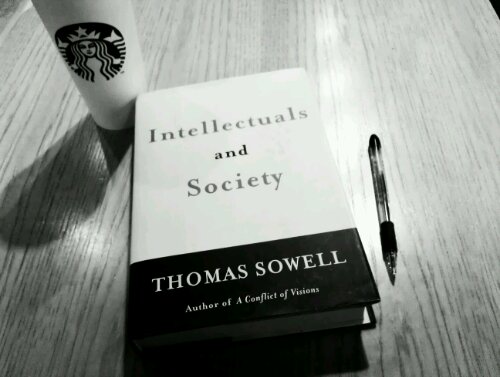 As a frequent customer and shareholder, I emailed Starbucks last week questioning information I had seen at DumpStarbucks.com , which claims that Starbucks is using their profits to lobby government to re-define marriage. Here’s the correspondence.
As a frequent customer and shareholder, I emailed Starbucks last week questioning information I had seen at DumpStarbucks.com , which claims that Starbucks is using their profits to lobby government to re-define marriage. Here’s the correspondence.
My wife and I frequent this Starbucks and several others. We are also shareholders. I’m at one location now and just saw a link to the “Dump Starbucks” website which reads in part:
On January 24th, 2012, Starbucks issued a memorandum declaring that same-sex marriage 'is core to who we are and what we value as a company.Starbucks also used its resources to participate in a legal case seeking to overturn a federal law declaring marriage as the union of one man and one woman.
We are very conscious of where our money goes and we do not support the overturning of laws in the pursuit of redefining millennia-old religious terminology. Is this information accurate? Is every purchase and every stock buy we make a contribution toward efforts to work against some of our core beliefs?
Thank you,
[SecondJon]
I received a response from Victor at Starbucks Customer Service:
Hello,Thank you for contacting Starbucks.At Starbucks, we deeply respect the views of our customers and partners (employees) and recognize that there is genuine passion surrounding this topic. Starbucks has many constituents, and from time to time we will make decisions that are consistent with our values and heritage but may be inconsistent with the views of a particular group.
From our very earliest days, Starbucks has strived to create a company culture that puts our people first and treats everyone equitably. Our company has a lengthy history of leading on and supporting policies that promote equality and inclusion, and we are proud to be one of several leading Northwest employers that support of Washington State legislation recognizing marriage equality. We made this decision through the lens of humanity and our commitment to embracing diversity.
We have 200,000 people that work for Starbucks around the world and the equity of our brand has been defined by the relationship we have with our partners and the relationship they have with our customers. Put simply, the success we’ve enjoyed and the resulting shareholder value created are directly linked to the pride our partners have for the company they work for and their connection with the communities we serve.
If you have any further questions or concerns that I was unable to address, please feel free to let me know.
Sincerely,
Victor
customer service
2 points:
Victor wrote that “…the success we’ve enjoyed and the resulting shareholder value created” are because of things like lobbying to redefine marriage. If that were the case, why isn’t there a big sign by the register of every Starbucks declaring they’re opposed to the traditional definition of marriage, that “money from every purchase is used to lobby government to redefine marriage?” Because it’s a lie. They benefit only because they hide their activities and hide behind ambiguity.
“Recognizing marriage equality” sounds nice, but also very ambiguous. As G. K. Chesterton wrote in Eugenics and Other Evils (a book I recommend, available online free), “evil always takes advantage of ambiguity,” so I followed up with an email seeking clarity:
Hello Victor,
Thanks for your response. As a frequent purchaser of products and a shareholder, I’m writing back for clarification, recognizing the power of the money I have invested in Starbucks.
What do you mean by “marriage equality”? My understanding is that currently any man and any woman can get married. The restrictions aren’t based on anything except 1) only 2 people and 2) a man and a woman.
There have historically been efforts to redefine marriage to change the legal marrying age, allow polygamy, or even change from gender restriction to discrimination based on sexual orientation, something like “2 same-sex people can be married, but only if they have sex with each other,” seemingly replacing the gender restriction with a sexual orientation or sexual activity restriction.
I’m guessing you aren’t the one who came up with the policy or the one who decided the rational of Starbucks’ using of my investment money to support the policy, but can you give some clarity of what the policy is that is being supported?
Thanks,
[SecondJon],
Customer and Shareholder
This is the crux of the issue in my mind. Currently, marriage is not defined as “a contract a man and a woman who love each other,” nor as “A man and a woman who have sex.” Both of those situations are plentiful outside of marriage. Legally, marriage is a contract between a man and a woman, recognized and encouraged through some limited benefits, such as additional tax filing options, because since Aristotle philosophers and politicians have seen the importance of strong family units. Certainly our perspective of what makes a family is changing.
Perhaps in reaction to their own parents not living out their marriage commitment, increasing numbers of couples are living together, having and raising children together without ever sealing the relationship with the commitment of a marriage certificate; others have a slightly more sophisticated gang mentality, where they see their group of friends as their family. Obama’s re-election campaign, with their Life of Julia, family is defined as one’s self and the government. As Debra J. Saunders, in the San Fransisco Chronicle, pointed out:
Until her son goes to kindergarten, Julia’s cartoon world does not depict any males, except one, as shown in this quote: “Under President Obama: Julia decides to have a child.”
What’s the goal of re-defining the family away from the natural father-mother-children unit? That’s a long and depressing story. For today, my point is just that it’s happening.
Anyway, Starbucks replied:
Hello,
Thank you for contacting Starbucks.
From the current perspective we are using, we are classifying marriage equality as involving 2 consenting adults.Thanks again for writing us. If you ever have any questions or concerns in the future, please don’t hesitate to get in touch.
Sincerely,
Nicholas
customer service
2 consenting adults? Starbucks is lobbying for incest? That’s weird.
Of course they aren’t lobbying for incest. They’re just continuing to be ambiguous.
People cry out “discrimination!” when traditional marriage is upheld, because marriage is defined as:
A commitment of certain things between a man and a women.
What’s the discrimination? There’s nothing in the definition of marriage that explores or restricts based on sexual orientation; there’s nothing in the definition of marriage that restricts based on anything other than gender. One man, one woman. They may not love each other, they may not ever sleep together. The only discrimination is the declaration:
men and women are different.
Why does this drive the Left crazy?
Efforts to re-define marriage are seeking a sort of definition like:
Marriage is a commitment between any two “consenting adults” as long as they have government-approved sexual behavior.
It’s strange. 2 siblings who want the financial benefits of marriage can’t get married if they’re heterosexual. But they could have the financial benefits if they’re homosexual.
Efforts to redefine marriage in favor of gay marriage introduce never before seen discrimination into the definition of marriage.
Efforts to redefine marriage in favor of gay marriage also seek to declare by fiat that these relationships are as beneficial to society as traditional marriage, without any historical reference.
There are so many things we like about Starbucks: the atmosphere; the employees; the employee benefits; double blended java chip frappuccinos with an added pump of white mocha. Unfortunately, they’re using the money we give as customers and shareholders to add to the effort to weaken marriage, the foundation of society as Aristotle pointed out. They say we should be okay with it because our shares have increased in value.
I’m sure many people can be bought that easily. But not us. We’ve stopped spending at Starbucks unless we need to meet with someone there, and we’re selling our shares.





